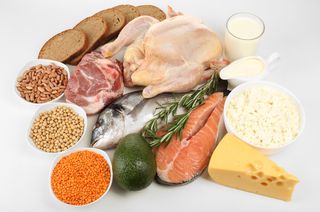What are proteins and what do protein bar recipe do? Proteins are large, complex molecules that play many critical roles in the body.
They do most of the work in cells and are required for the structure, function, and regulation of the body’s tissues and organs. Proteins are made up of hundreds or thousands of smaller units called amino acids, which are attached to one another in long chains. There are 20 different types of amino acids that can be combined to make a protein. The sequence of amino acids determines each protein’s unique 3-dimensional structure and its specific function. Antibodies bind to specific foreign particles, such as viruses and bacteria, to help protect the body. Enzymes carry out almost all of the thousands of chemical reactions that take place in cells. They also assist with the formation of new molecules by reading the genetic information stored in DNA.
Messenger proteins, such as some types of hormones, transmit signals to coordinate biological processes between different cells, tissues, and organs. These proteins provide structure and support for cells. On a larger scale, they also allow the body to move. These proteins bind and carry atoms and small molecules within cells and throughout the body. Arizona State University’s “Ask a Biologist” discusses the different kinds of proteins and what they do. NCBI Bookshelf, offers a detailed introduction to protein function.

How do genes direct the production of proteins? Can genes be turned on and off in cells? How do genes control the growth and division of cells? How do geneticists indicate the location of a gene? The information on this site should not be used as a substitute for professional medical care or advice. Contact a health care provider if you have questions about your health.
This article is about protein as a nutrient. For protein as a class of molecule, see Protein. For other uses, see Bodybuilding supplement. Amino acids are the building blocks of protein. Present in every cell, they are also precursors to nucleic acids, co-enzymes, hormones, immune response, repair and other molecules essential for life. Proteins are essential nutrients for the human body. They are one of the building blocks of body tissue and can also serve as a fuel source.